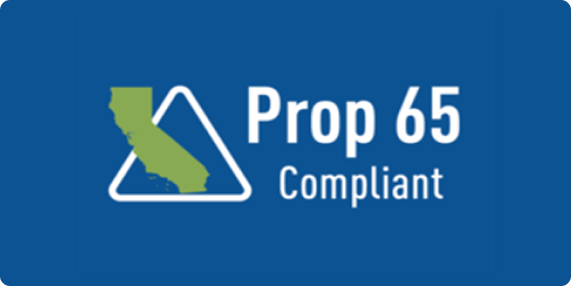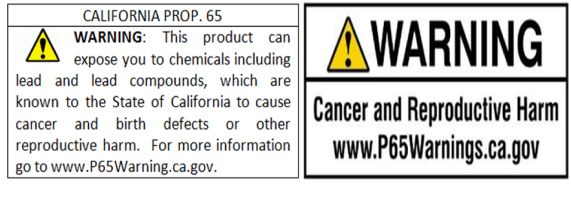Overview

Introduction to California Proposition 65
In 1986, California enacted Proposition 65, the Safe Drinking Water and Toxic Enforcement Act, following a decisive public vote. This landmark legislation mandates the state to maintain a list of chemicals known to cause cancer, birth defects, or other reproductive harm. Today, this list includes approximately 1000 chemicals, reflecting California's ongoing commitment to health and environmental safety.
The Purpose of Proposition 65
Proposition 65 obligates businesses to inform Californians about significant exposures to these hazardous chemicals, whether through products, in homes or workplaces, or environmental release. By enabling informed decisions, the law empowers individuals to protect their health from potential risks.


Mechanism for Listing Chemicals
Chemicals are added to the Proposition 65 list through evaluations by two main bodies: the Carcinogen Identification Committee (CIC) and the Developmental and Reproductive Toxicant (DART) Identification Committee, collectively known as the State’s Qualified Experts. Additional inputs come from authoritative bodies like the US EPA, FDA, NIOSH, and IARC, ensuring a robust assessment process. For a detailed understanding of how chemicals are designated under Proposition 65, visit the Office of Environmental Health Hazard Assessment (OEHHA).
Proposition 65 Warnings
Since August 2018, new requirements mandate that warnings provided under Proposition 65 must name at least one listed chemical and direct consumers to the OEHHA website for more information, marked by a distinctive yellow triangle symbol and the word "WARNING". For more details on the substances and the associated risks, visit www.P65Warnings.ca.gov.


Compliance with Proposition 65
Compliance involves providing clear and reasonable warnings for products exposing individuals to listed substances above established safe harbor levels. The 2016 amendment to Article 6 aimed to make warnings more meaningful, reducing "over-warning" and clarifying responsibilities among manufacturers and retailers.
Enforcement of Proposition 65
The California Attorney General's Office, alongside district attorneys, city attorneys, and individuals acting in the public interest, enforces Proposition 65. This broad enforcement mechanism has led to numerous lawsuits, emphasizing the law’s wide-reaching impact. For more information on enforcement actions and guidelines, visit the California Attorney General's Proposition 65 website.


Penalties for Non-Compliance
Violations of Proposition 65 can lead to penalties of up to $2,500 per day for each infraction, underscoring the need for businesses to adhere to the act's requirements. Detailed information about enforcement and the consequences of non-compliance can be found on the Attorney General's Proposition 65 webpage.
















